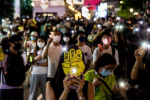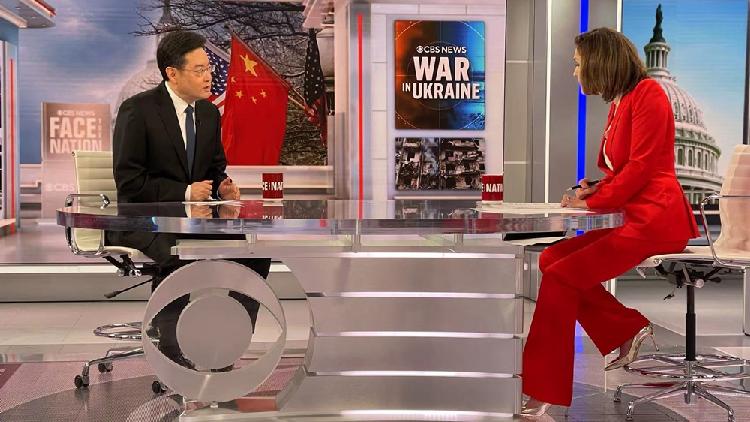Ocean
The Living Force

China Tells U.S. 'Look in Mirror' After Officials Honor Tiananmen Victims
Blinken also noted that police in Hong Kong banned a Tiananmen Square vigil to honor the victims. Authorities in China said that the gathering was against COVID-19 mitigation restrictions.
China Foreign Ministry spokesperson Wang Wenbin made the remarks during a press conference, where he also urged the U.S. to "face up to its own serious human rights problems," according to Agence France-Presse (AFP).
Wang continued, "Considering its irrefutable misdeeds on human rights, what qualifies the United States to lecture others?," according to AFP.
The remarks by Wang come in response to Blinken issuing a statement saying that the U.S. "will continue to stand with the people of China as they demand that their government respect universal human rights," and "honor the sacrifices of those killed 32 years ago, and the brave activists who carry on their efforts today in the face of ongoing government repression," on the 32nd anniversary of the 1989 Tiananmen Square massacre.
In April 1989, students in China began protesting in Tiananmen Square over numerous issues including corruption and calls for political change.
Protests continued over the next several months, and on June 4 of that year, the Chinese government declared martial law against the demonstrators. Soldiers marched on Tiananmen Square and opened fire on protesters.
Numerous protesters died, with some estimates nearing 1,000 fatalities, but China has continued to claim that no deaths occurred within the square and Beijing has never confirmed an exact death toll.
Public mention and remembrance of the event has continued to be prohibited in mainland China. The incident also led to heightened tensions between China and the U.S.
In his statement on Thursday, Blinken said, "Named after the nearby Gate of Heavenly Peace, the square is instead synonymous with the brutal actions by the government of the People's Republic of China in 1989 to silence tens of thousands of individuals advocating to have a say in their government and exercise their human rights and fundamental freedoms."
Blinken also noted that police in Hong Kong banned a Tiananmen Square vigil to honor the victims. Authorities in China said that the gathering was against COVID-19 mitigation restrictions.
"The Tiananmen demonstrations are echoed in the struggle for democracy and freedom in Hong Kong, where a planned vigil to commemorate the massacre in Tiananmen Square was banned by local authorities," Blinken said.
A spokesperson for the State Department told Newsweek that the U.S. has continued to denounce efforts by China to prohibit residents from commemorating the anniversary of the 1989 Tiananmen Square massacre.
While the Tiananmen Square vigil was banned by authorities, the U.S. Embassy in Beijing said on Friday it was planning to hold a "candlelight vigil at the U.S. embassy to remember the victims of the massacre in Tiananmen Square 32 years ago."
People hold up their phones with the light on in the Causeway Bay district of Hong Kong on June 4 after police closed the venue where Hong Kong people traditionally gather annually to mourn the victims of China's Tiananmen Square crackdown in 1989, which the authorities have banned, citing the coronavirus pandemic and vowed to stamp out any protests on the anniversary.ISAAC LAWRENCE/GETTY
"Those killed were only trying to find new ways to strengthen the country they loved. They were patriots whom we remember, and their courage continues to inspire us," the embassy said in a statement.
Newsweek reached out to China's Foreign Ministry for comment but did not receive a response in time for publication.




